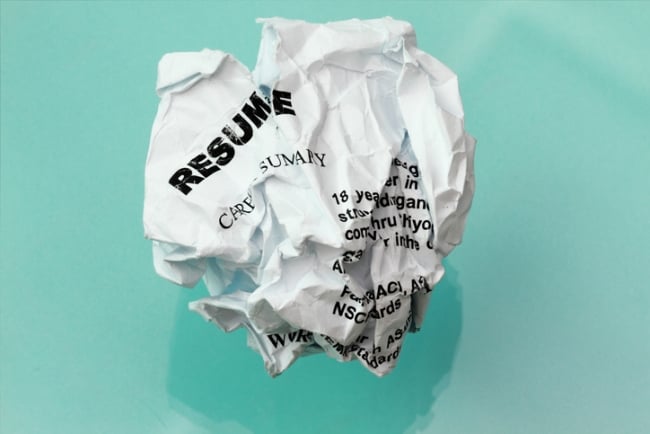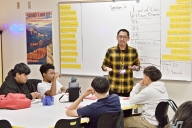You have /5 articles left.
Sign up for a free account or log in.

istockphoto.com/ragsac
Many college students typically have secured summer internships or postgraduation jobs by the time the academic year comes to a close. Those who haven't gotten internships or found permanent work are usually scanning opportunities posted on job boards or listed through their college career centers.
Things look very different this spring. The coronavirus pandemic has forced many employers, whose offices are shuttered and whose revenues are trending downward, to rescind or shorten previously offered internships and jobs. With the country facing economic uncertainty and businesses deeply worried about their bottom line, employers are reconsidering investments in future talent, said Shawn VanDerziel, executive director of the National Association of College Employers, or NACE, a professional organization for college career services officials and recruiters.
The healthy job market that existed just months ago is gone, and this has heightened the anxieties of college seniors worried about postgraduate employment, said Sharon Hansen, director of career and postgraduate development at Ursinus College, a private liberal arts college in Collegeville, Pa. Some polls of students have found they have a dismal outlook for internship opportunities this summer. More than one-third of students who had confirmed internship offers for the summer said those opportunities were subsequently canceled, according to a survey of 900 students released last week by Yello, a staffing platform.
Carly Rogers, a senior scheduled to graduate from the University of Florida this summer with a degree in public relations, said she has been applying for three jobs or internships every day since her summer internship in New York City at Edelman, a global communications firm, was canceled on April 23. She called the cancellation of internships “disappointing” and “disheartening.”
She said businesses should be leaders during this time and continue to offer internships if they can afford it.
“People remember how you treat them,” Rogers said. “If I see a company still hiring, still giving out opportunities for young professionals, that tells me something about their culture. I’m going to remember how they treated me during a pandemic.”
NACE also conducted periodic polls of hundreds of colleges and employers throughout April and determined that nearly 59 percent of 341 medium to large employers surveyed said they were not revoking any internship or job offers. About 22 percent said these decisions were “under consideration,” VanDerziel said. Some employers are confident they will have a physical space for employees to work as the country starts reopening, while others have a “much more cautious view,” depending on their industry and location, VanDerziel said.
Many employers seem to be in a “holding pattern” while trying to determine whether the onboarding process for interns and new hires can be done remotely, or whether employees will be able to return to their offices by summertime, said Tim Harding, associate dean of career development and engagement at the University of Tampa. Hansen said for Ursinus students that applied recently to jobs and internships, employer responses have been slower, but as businesses regain their footing, she’s optimistic offers will start to pour in.
“It’s an exercise in patience,” Hansen said. “I’m noticing that there’s a ‘great pause.’ We’re not seeing as many of those new opportunities for seniors. As of right now, we’re seeing some … I haven’t seen that flush or stream come through yet, but I expect this pause will unlock.”
Despite the delays, the opportunities are out there, and students have to be “adaptable” and “flexible in what a meaningful summer opportunity could be,” Hansen said. American University, which is well-known for having students who complete one or more internships by the time they graduate, has seen more than 80 percent of its “internship for credit” hosts continue to offer remote internships, some of which also include pay, said Gihan Fernando, executive director of the career center.
For students who are struggling to secure summer jobs or other opportunities to get work experience, or who had their internship revoked, American is offering other meaningful ways for them to spend their summer, including academic projects with a faculty supervisor to replicate the internship experience or volunteer work, Fernando said. Demand for summer courses has also risen significantly, he said.
“On one hand, we make students available for real opportunities,” Fernando said. “Then for students having trouble, helping them productively spend that time so they have the opportunity to build skills. The story you tell about how you spent your time while you’re looking is just as important as anything.”
About 40 percent of employers surveyed by NACE have decided to transition into completely virtual internships, or have delayed start dates and shortened experiences over all, VanDerziel said.
“If employers are taking the bet that they’re going to continue to grow in the future, they are moving forward because they need the pipeline of talent,” VanDerziel said. “By creating a virtual program, they’re still able to have that contact with students and that talent, but in a modified way.”
Parker Wolf, a senior at Ursinus, counts himself lucky to still be starting remotely as a sales representative at a health-care start-up in New York City this summer, but he said it “hurts a lot” that he won’t be getting the in-person training and collaborative experience he expected. The "team environment" of start-ups is what leads these companies to grow, he said.
“It’s cool to go into an office, especially at a start-up,” Wolf said. “I was looking forward to that train ride going from Hoboken to New York and being a broke kid, living in the moment.”
But, Wolf said, “beggars can’t be choosers.”
As the CEO of UCIMCO, a student-run investment organization at the college that manages $100,000 of funds in the stock market, Wolf understands more than others that the market will be “very volatile” for the next few months, and as a result employers are acting with uncertainty, he said. Wolf is even more concerned for students in the Class of 2021, who have also seen summer jobs and internship offers withdrawn and won’t be as prepared for the job market when they graduate next year, he said.
“They’re even at more of a disadvantage than our class if they don’t get those summer-before-senior-year internships,” Wolf said. “Those are some of the ways to get a job. That’s a crappy situation, going into your senior year and not really knowing what lays ahead of you.”
For those students that have held on to digital opportunities, learning how to work in a remote environment could be beneficial, career center directors say. The current generation of college students are known as “digital natives” and could even have a leg up in the job market, said Lynn Pasquerella, president of the Association of American Colleges and Universities.
One reality of the current job market is that many college students will now be competing with the millions of people who lost jobs during the pandemic, many of whom will be willing to take low-paying or unpaid work to get by or enhance their résumés, Pasquerella said.
Harding, at the University of Tampa, said students’ inability to get the professional development they need to be competitive in this new environment is a “big” concern. But he wonders whether they'll eventually find work as college graduates did during the 2008-09 recession.
“What’s interesting is what we experienced back in the last Great Recession,” Harding said. “Students coming out of college, we did see that they were a bit more competitive because they would bring new ideas, new approaches and could be paid a lower pay rate. College students graduating now could be at an advantage in some ways compared to those who have lost their jobs.”
College career services directors say they remain optimistic that students will come out of the pandemic in a strong position and that students shouldn’t be discouraged.
“Don’t give in to the headlines … pursue your job search,” said Suzanne Helbig, associate vice provost of the Division of Career Pathways at the University of California, Irvine. “Many employers are not necessarily canceling opportunities, but they’re in a state of flux, too, figuring things out.”
Rogers, the Florida student, encouraged other students in a blog post to offer to work for free, if they're able, or to find professional development courses online to improve their work skills and enhance their résumés. Even though her internship with Edelman was canceled, Rogers said she still plans to follow up and ask if they need any remote work done. There are “untraditional opportunities” out there for students, she said.
“If a small business in their hometown needs help with social media, there’s something you can do,” Rogers said. “If your old internship adviser has some layoffs and needs help, offer yours … We’re going to be great employees one day because of our ability to think under pressure and in crisis.”








